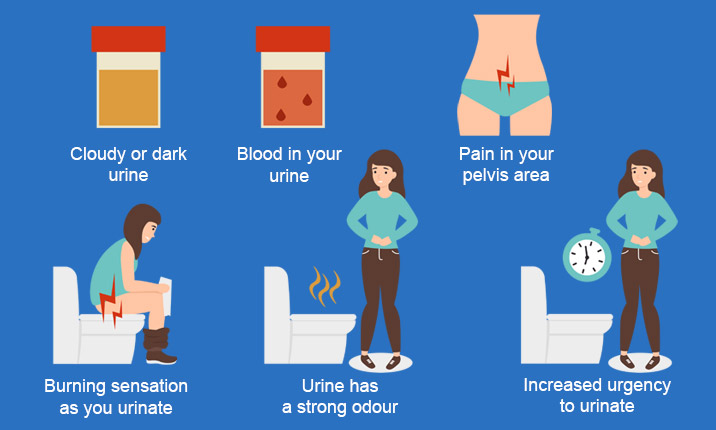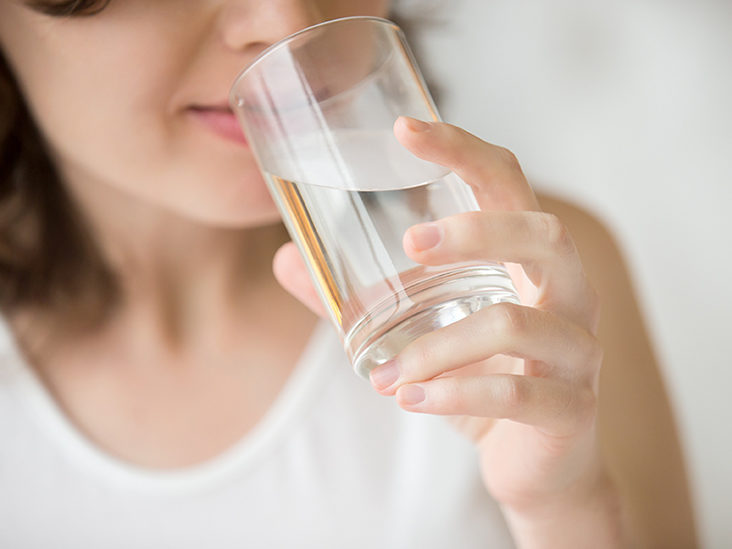What is a urinary tract infection (UTI)?
Urinary tract infections(UTI) occur usually due to microbial inaction of the urinalysis tract ( that could be anywhere from kidneys, bladder, prostate- in men, and urethra) with the inflammatory response of the body.
The latter is usually manifested by various symptoms depending on the location of the infection and severity.
What are the symptoms of a urinary tract infection (UTI)?

For infections involving the urinary bladder, symptoms are:
- painful urination and a burning sensation
- needing to urinate frequently
- sudden urges to empty your bladder, called urinary urgency
- pain in your central lower abdomen, just above the pubic bone
- blood in your urine
However, if infections affect the kidneys, the symptoms might be more pronounced, some of which are explained below:
- pain in your sides or back that doesn’t change when you change position
- fever and chills
- nausea and vomiting
Certain symptoms in addition to those of a UTI could mean you have a prostate infection (prostatitis). These include:
- fever
- chills
- fatigue
- difficulty urinating or “dribbling”
- pain in your pelvis or the area between your rectum and scrotum (perineum)
Causes of Urinary Tract Infections
Most UTIs are caused by the bacterium Escherichia coli (E. coli), which is naturally present in your body. The bacterium gets into the urinary tract through the urethra. The urethra is the tube that drains urine from your bladder.
UTIs are more common in women than in men because their urethra is shorter and the bacteria need to travel a shorter distance to reach their bladder.
At least a third of women will have one infection during their lifetime.these aren’t normally sexually transmitted , because the infection is typically from bacteria already present in the urinary tract.
UTIs in men are more common with older age, possible, because older men
are more likely to develop enlargement of their prostate gland, called benign
prostatic enlargement. The prostate wraps around the neck of the bladder, where
the urethra connects to
the bladder. Enlargement of the prostate gland can choke off the bladder neck,
making it harder for urine to flow freely. If the bladder doesn’t empty
completely, bacteria that are normally flushed out with the urine might gain a
foothold.
Other factors that can put you at greater risk for UTIs include the following:
- being immobile for long periods
- not drinking enough fluids
- recent urinary tract surgery
- diabetes
- being uncircumcised
- fecal incontinence
- engaging in anal intercourse, which exposes the urethra to more bacteria
Diagnosis of Urinary Tract Infections
To diagnose a UTI, your doctor will examine you and ask about symptoms, including any past history of UTIs. You may be asked to provide a urine sample to check for pus and bacteria. The presence of pus strongly points to a UTI.
If your doctor suspects an enlarged prostate gland, they may do a digital rectal exam, using a gloved finger to feel your prostate gland through the wall of your rectum.
Treatment for UTIs
If you have a UTI, you will need to take antibiotic medications. Depending on the type of antibiotic your doctor prescribes, you will take the pills either once or twice a day for five to seven or more days.

It’s also important to drink adequate fluids. You may be tempted to reduce your fluid intake if urinating is uncomfortable. Urination can help flush the bacteria from your system. Stay hydrated and urinate often while taking your antibiotics.
Many people drink cranberry juice during UTIs in hopes of clearing the infection. Lab experiments with mice showed that several substances in cranberry juice lowered bacteria count in the bladder. However, there is no strong evidence that drinking cranberry
juice during a UTI eliminates the infection or speeds recovery.
Recovering from UTIs
After starting antibiotics, you should feel better within two to three days. If your symptoms don’t clear up after taking antibiotics, see your doctor.
It’s important to finish all antibiotics prescribed, even if you’re feeling better. Stopping your antibiotics prematurely can encourage growth of bacteria resistant to common antibiotics. In effect, less than the full course of treatment kills off the
“weak” bacteria, leaving the stronger and more resistant strains.
Conclusion
Urinary tract infections(UTI) occur usually due to microbial inaction of the urinalysis tract ( that could be anywhere from kidneys, bladder, prostate- in men, and urethra) with inflammatory response of the body. Treatment for UTIs are antibiotic medications and drink adequate fluids.Dr Thwaini is a consultant urological surgeon in dubai with specialist interest in urological cancers, namely in renal cancers. He was the lead for renal cancers in the Belfast Health and Social Care Trust (Belfast City Hospital).

